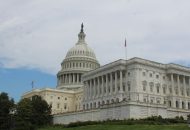With a Recession Looming, Gig Worker Reclassification Would Cause More Harm Than Good
COMMENTARY

The Department of Labor’s proposed rule to remove gig workers’ status as independent contractors threatens to cause millions in lost income.
Despite the Biden administration’s inflation reduction efforts, over half of U.S. adults are now considering a second job to make ends meet. While the Federal Reserve grapples with interest rates and consumers worry about a looming recession, Democrats must act thoughtfully to ensure they don’t roll back their own economic progress.
This includes rethinking the DOL’s proposed rule to potentially force millions of gig workers to become full-time employees — a move that would threaten Americans’ already fragile finances.
If this newly proposed rule is ultimately applied to gig work, it has the potential to strip workers of their independent contractor status — a change that would threaten workers’ job flexibility and trigger a loss of income across the country. Democrats’ better-than-anticipated performance in the midterms happened despite high inflation and a murky economic outlook for the country. A new DOL rule limiting access to gig work for the 59 million Americans who participate in the gig economy could make things worse.
But DOL’s new rule would have more than just political ramifications. For some of America’s most vulnerable communities, the flexibility of gig work is a lifeline. The opportunity for gig workers to set their own hours is particularly important for workers with family obligations, disabled and chronically ill workers, and people who have another full-time job and have picked up gig work to make ends meet. Right now, drivers for Uber, Lyft, DoorDash, Instacart and more also have the flexibility to set their own hours and multi-home between platforms to customize their income.
By requiring companies to hire gig workers as full-time employees, DOL’s rule could quash that flexibility, cutting off an essential source of income for millions. Workers simply don’t want that.
Time and again, gig workers have made it known that they prefer the flexibility of independent contracting. A recent survey found that 77% of app-based workers support maintaining their current classification and 83% expect to continue doing app-based work in the next year. This preference isn’t just talk, either. When gig workers’ independent status was on the ballot in California, voters overwhelmingly chose to protect app-based workers’ job flexibility. Lawmakers in Washington state also took up the issue this past spring, working to protect app-based drivers’ independent status.
On a macro scale, reclassification would trigger a loss of work and reduced income across the economy. A recent study on the potential impact of worker reclassification under an “ABC” rule found that involuntary reclassification could amount to nearly half the job losses seen during the Great Recession. While the DOL isn’t proposing that exact style of reclassification, it’s not hard to imagine that even half of those job losses would impact the economy in a significant way.
With a recession looming and inflation still high, the Biden administration must be careful not to work against its own interests, and those of voters, by forcing a reclassification that would threaten app-based workers’ livelihoods. President Biden ran on a promise to relieve the financial burdens squeezing the middle class. He should be working towards that goal, not against it.
Adam Kovacevich is CEO and founder of the Chamber of Progress, a new center-left tech industry policy coalition promoting technology’s progressive future. Chamber of Progress corporate partners include Amazon, Apple, Google and Facebook. You can reach the Chamber of Progress here and follow Adam on Twitter @adamkovac.
























